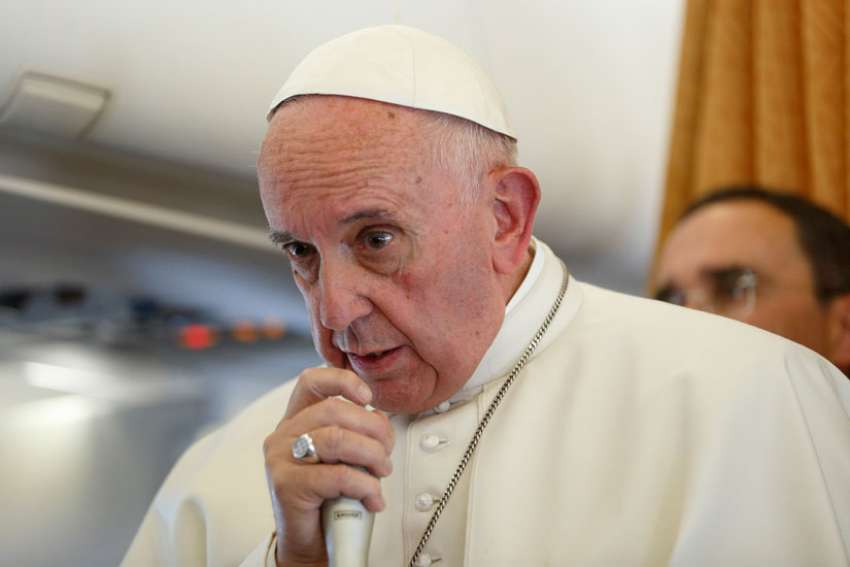We live in a time when it is common for elected officials, business executives and heads of public institutions to embrace whatever social or moral trend is being championed by advocacy groups and the media. So it apparently comes as a jolt to many when a respected figure like Pope Francis, someone regarded as progressive, defies political correctness and sides unequivocally with tradition.
Such was the case when the Pope made headlines after reaffirming that the Church has no plans, now or in the future, to ordain female priests. He made the comment to journalists on a flight home to Rome after visiting Sweden to commemorate the upcoming 500th anniversary of the Reformation. Among those he joined there was the first woman to lead the Lutheran Church in Sweden, Archbishop Antje Jackelen.
Asked by a Swedish reporter about the possibility in coming decades of female ordination in the Roman Catholic Church, the Pope never flinched — there will never be female priests, he replied.
“Really? Never?” he was pressed.
“If we read carefully the declaration made by St. John Paul II, it goes in that direction,” said Francis, referring to the former pope’s assertion that an all-male clergy “is in accordance with God’s plan for His Church.”
Specifically, St. John Paul II wrote: “I declare that the Church has no authority whatsoever to confer priestly ordination on women and that this judgment is to be definitively held by all the Church’s faithful.”
A year earlier, pressed on the topic of female priests, Francis declared, “women priests — that cannot be done.” Two years ago, he was just as clear: “The Church has spoken and says no… that door is closed,” he said.
Pope Francis has demonstrated that he may be a reformer in terms of papal style and administration, but on matters of doctrine he walks in the footsteps of Benedict XVI and John Paul II, popes who rejected many aspects of the world’s social revolution. Francis has said no to female priests, no to same-sex unions, no to divorce, no to abortion, no to transgenderism. That should hardly come as a surprise. Popes are not elected to amend doctrine but to show people how to live Gospel lives.
When Francis proposes a different way to live as Catholics in a changing world, he does not mean Catholicism must be different. He has not proposed a new magisterium to suit the times. But he does insist on attitudes that are non-judgmental and merciful.
So don’t expect doctrinal change from Francis. He is the Pope, after all.


